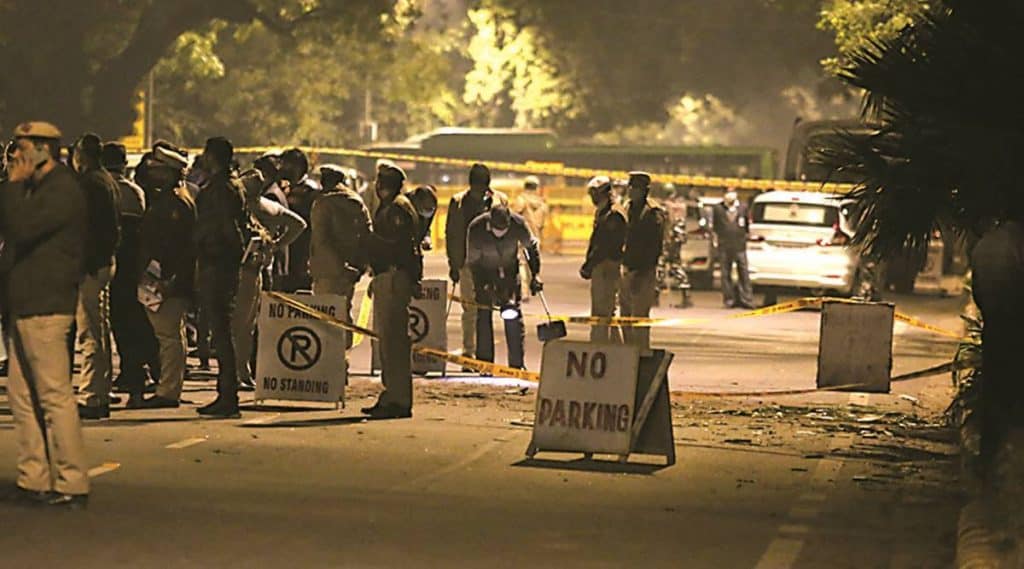
Two unknown militant groups ‘SarAllah India Hezbollah’ and ‘Jaish ul-Hind’ have claimed responsibility for a blast near the Israeli embassy in New Delhi on Friday.
According to local reports, an improvised explosive device (IED) detonated outside the Israeli embassy late Friday afternoon causing damage to several vehicles parked in the vicinity of the blast.
Investigators at the site of the attack found a handwritten letter addressed to the Israeli ambassador to India claiming credit for the assault by a group identifying itself as ‘SarAllah India Hezbollah’.
“To the terrorist, devil of terrorist nation Dr. Ron Malka. This is just a trailer presented to you, that we can observe you.. Mind it, all the participants and partners of Israelian terrorist ideology will be no more in existence. Now get ready for a big and better revenge of our heros; Martyr Qasem Soleimani, Martyr Abu Mahdi al-Muhandis and Dr. Mohsin Fakhrizadeh (sic),” the statement said.
Additionally, following the blast, jihadist social media channels published a message by a second militant group identifying itself as ‘Jaish ul-Hind’ also claiming responsibility for the strike.
“A strike in the heart of Delhi. By the grace and help of Almighty Allah, soilders of the Jaish ul Hind were able to infiltrate a high security area in Delhi and carryout an IED attack. This Allah willing is the beginning of a series of attacks which would target major Indian cities and pay back in kind to the atrocities committed by the Indian state. Wait and we too are waiting (sic),” the message stated.
Questionable claims by unknown groups
Although it is common for militant groups to publish statements taking credit for an attack, these particular claims are suspicious and lack the professionalism usually found in statements made by established groups. For instance, the ‘Jaish ul-Hind’ statement doesn’t mention the embassy, and emphasized ‘atrocities’ committed by India, not Israel.
Furthermore, the ‘SarAllah India Hezbollah’ statement also raises doubts due to the poor grammar contained in the letter. However, it is worth noting that the group’s name is a common Shi’ite title that has been used by Iranian-backed groups in Bahrain and Iraq.
Adding to the likelihood this assault was not carried out by an established group like Hezbollah, local media reported the bomb used in the strike was ‘very basic in nature’ and ‘did not appear to be the creation of an expert bomb maker’.
Indian authorities continue to investigate the offensive and have yet to officially disclose if the attack was perpetrated by an Iranian-backed group, or if this was an assault by a local militant organization attempting to make a name for itself.







